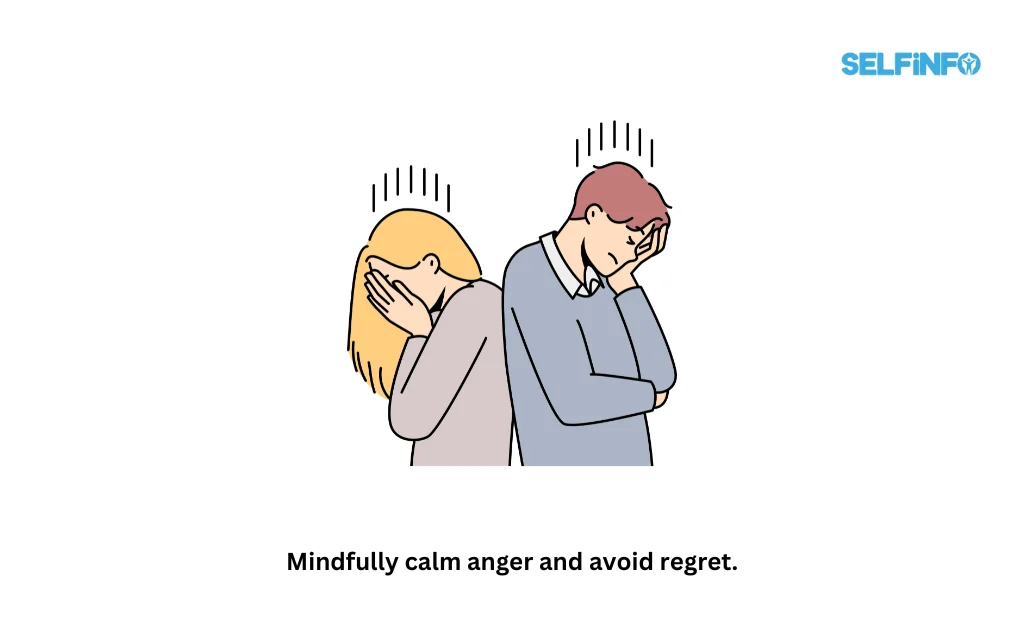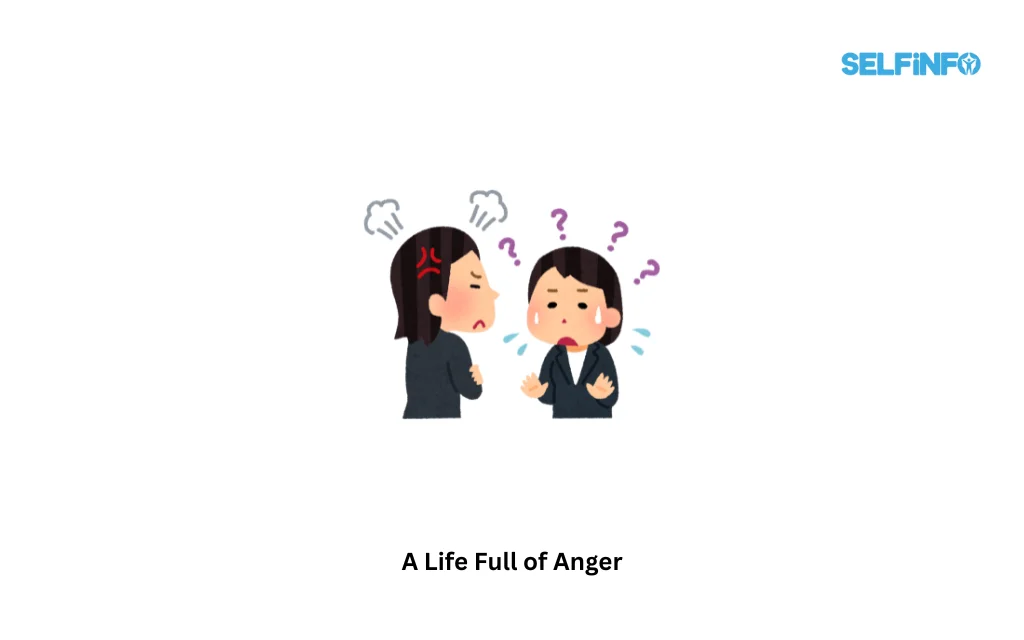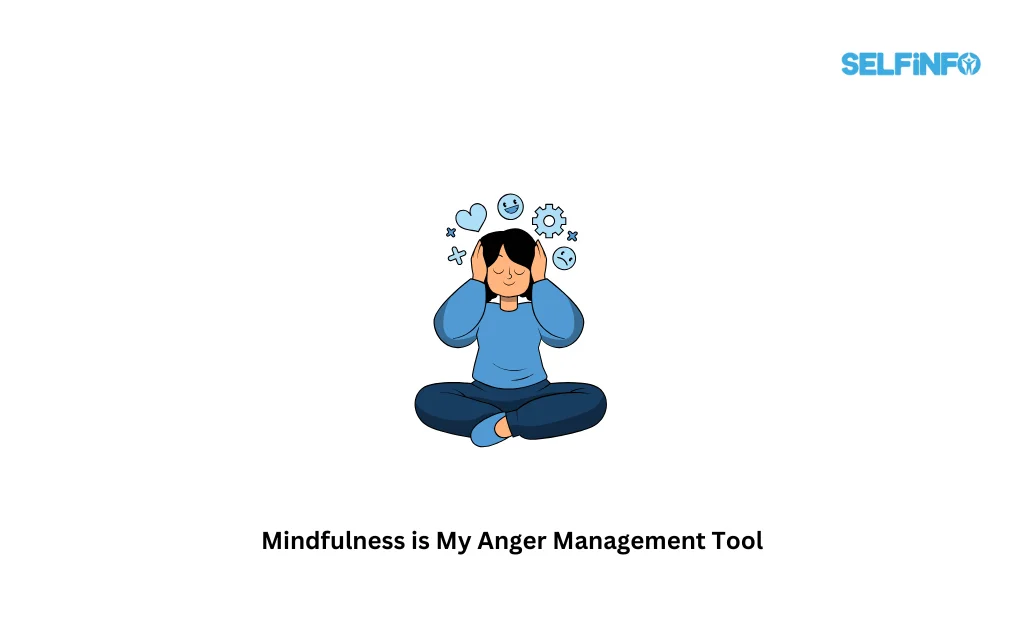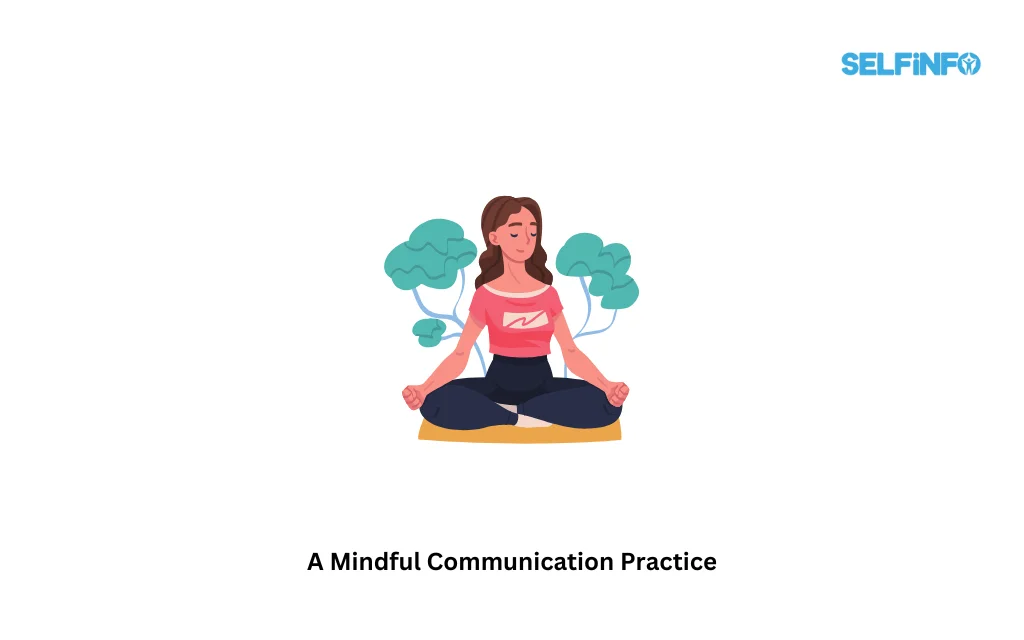Mindfully managing my anger has been one of the most transformative impacts of mindfulness in my life.
Anger used to rule my life, but anyone who has met me in the last several years would never know. I frequently wish that those who are just getting to know me would understand the changes I have undergone from my past. I believe that everyone would try mindfulness if they could see how it transformed me from a grumpy, impatient person who detested the world to a joyful, carefree man.
I have been able to observe my body and thoughts when my anger is rising thanks to my mindfulness practice. This is what I frequently refer to as the “volume knob” of rage, and I will go into more detail about that soon.
I want to start by sharing a little bit of my past with you so that you can better understand where I was and where I am now via mindfulness.

The Child of an Alcoholic
My mother was an alcoholic, which caused me to have a lot of problems growing up, but the main one was anger.
I could not understand why my mother would not quit drinking for me, therefore I was furious with her. I assumed she would be able to give up drinking for me if she really loved me, but she didn’t. When I was twenty years old, my mom finally got sober, but it was too late, and I still harbored grudges against her from the previous twenty years.
It was not only my mother that I was angry with, but the entire world.
In retrospect, everything seems utterly crazy (and it was, sort of). Growing up alongside children who were spared the hardships I was experiencing at home infuriated me. My childhood friends had wonderful parents who earned a respectable living and were able to purchase anything they desired. They had parents and other family members who genuinely cared for them, so it was not simply the material possessions.
A Life Full of Anger

It was tiring to be furious all the time, but it was the only way I knew how to feel. As a result, I vented my rage on everyone I came into contact with.
I did not get into many physical fights as a child, but I did say some hurtful things. Throughout my life, I have injured a lot of individuals by saying the most awful things I could think of, and I felt terrible about it. I could see how toxic I was to everyone who had the misfortune of dating me, even though I believed that every woman I had dated was to blame.
I neglected to disclose that I became an alcoholic and drug addict myself when I was about eighteen, but I was able to become clean on my twenty-seventh birthday in 2012.
One of the main reasons we drink and use is because of resentments, according to the recovery program I work on, and I could absolutely identify to that. Making apologies is another aspect of this program. Although I am not a huge lover of making amends, it did help me forgive myself to make amends to the people I had harmed in the past.
The fact that you do not instantly transform into this spiritual entity is one of the problems with sobriety. I was still quite angry, and I was still unable to control my fury. I was the perfect example of someone who did not reply, but rather reacted. Every time I reacted badly, I had to be humble enough to say I was sorry. I discovered mindfulness because I needed to learn how to control my anger before it reached that stage.
Mindfulness is My Anger Management Tool

It was not until I was three years sober that I discovered mindfulness. My fury was still there, but it was not quite as strong as it had was. I tried practicing mindfulness meditation since I knew I still had a lot of work to do on myself.
I realized right away how life-changing meditation might be when I tried it for the first time, but I had no idea how much it would assist me with my anger management problems.
The fact that there are so many unofficial mindfulness practices is one of the reasons I adore it. I was growing more attentive in my daily life as I began implementing various techniques like mindful walking, mindful listening, and mindful conversing.
I started to see that I was only expressing my anger when I was about to lose it, and that it was frequently something that had been simmering for some time. I could not deal with my anger before I reacted in a way I would later regret because I was not able to identify the early triggers.
I began to identify some patterns of my rage triggers, which include:
- Disrespected
- lied to
- Being treated unfairly and being talked down to
- Not acknowledged
- Not valued
When I talk about the “volume knob” of anger, I mean that practicing mindfulness has made it easier for me to start controlling my anger at a level of one or two instead of nine or 10. By the time my rage reaches its peak, it is taking control of me instead of the other way around.
By practicing mindfulness throughout the day, I have been able to not only recognize my anger early on but also respond to it with curiosity and compassion.
Now, I am quite interested when I experience that first fury in my body or head. I merely think, “That is interesting,” after taking a deep breath. Why do I feel this way about this individual or circumstance?
I find that practicing mindfulness helps me clear my head and understand what is actually going on inside my own head. My rage is frequently motivated by events that are entirely beyond my control or by other events that are unrelated to the other person or people.
The realization that my anger is frequently founded on narrow-minded belief systems is maybe the most significant impact that mindfulness has had on me.
A Mindful Communication Practice

Mindful communication is an excellent technique that you might start utilizing. This entails listening intently and paying attention to your own body and mind while participating in a conversation in order to be fully present.
You should start practicing this with someone you do not get along with, but not someone who makes you feel too emotional, in my opinion. This could be a friend in your personal circle, a family member, or a coworker you do not particularly like. You can do it while watching the news or perusing social media posts if this is too much for you.
Be aware of the feelings and sensations that are rising in your body as you speak with this person. Start observing what they said that caused this first emotion, and pay attention to your body’s sensations.
Instead than passing judgment, simply exercise curiosity. Pay attention to the reasons behind your body’s and mind’s current reactions. You are less likely to react negatively in the circumstance if you handle these feelings and thoughts calmly.
By “fascinated,” I mean to approach your experience with a childlike wonder. One of my first mindfulness teachings was this one. When you are curious, you are not passing judgment. Think about it like a toddler looking closely at a leaf for the first time. This lessens the impact of the intense emotion you are experiencing at the time.
This entire technique is crucial because it allows us to take a moment to reflect. We can respond instead of react when we pause. Our brain’s basic half frequently wants to react, and we do not give it any attention. Usually, this results in regret and pain. We make far better decisions when we can pause and then react.
You will need to do this until you can manage your fury, but eventually you will start thinking back on the things that would have triggered you. I am personally in awe at how effectively I control my anger these days, and I am still working on it. I no longer find myself second-guessing the choices I made in a panic since I now know how to respond rather than react.
I wish more people could genuinely comprehend the extent to which mindfulness has transformed me, as I indicated at the opening of this piece. I always consider how different the world would be if more people adopted this practice whenever I witness senseless acts of violence like domestic abuse, physical altercations between strangers, or even murders that result from someone is incapacity to control their fury.
I want to set an example for others by practicing mindfulness when it comes to controlling my anger. They might choose to try this mindfulness practice if they observe how I handle life’s challenges on a daily basis.
